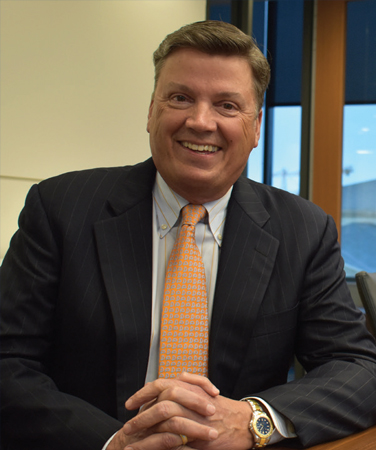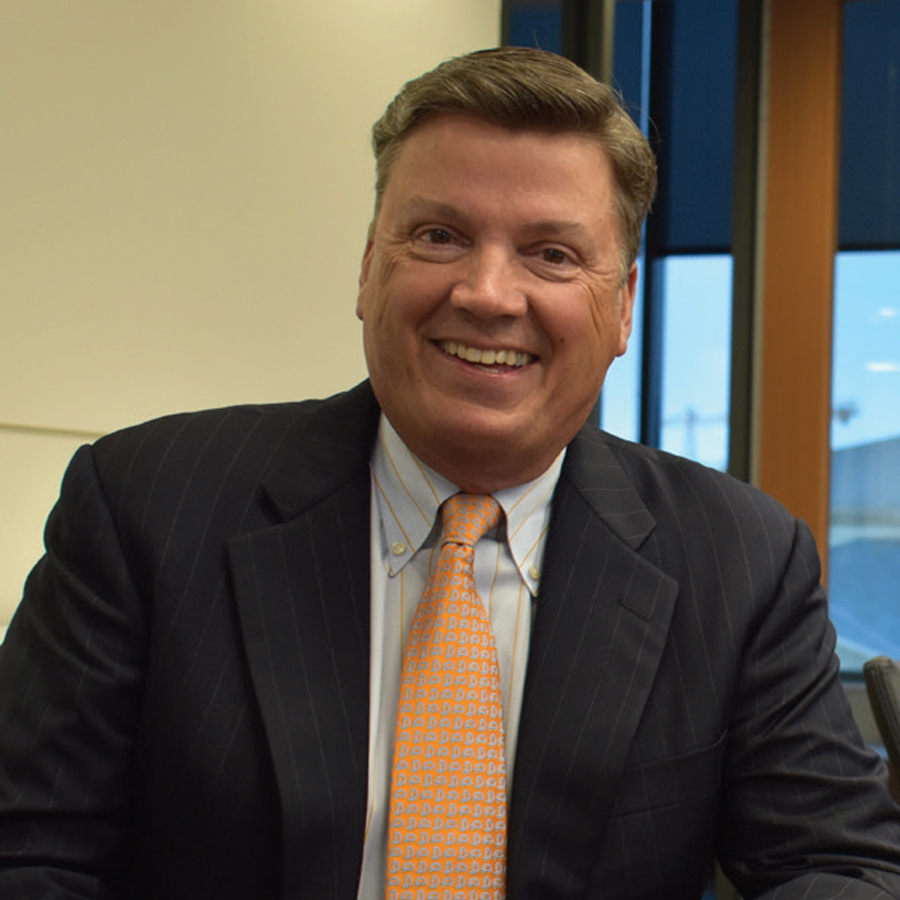You Can’t Stop Innovating
 Remember when there were only two flavors of Gatorade?
Remember when there were only two flavors of Gatorade?
How does one define positive change within an organization?
When asked, Lee Burleson, longtime executive with Quaker Oats and PepsiCo, referred to simplicity, innovation, and the word “teamwork” multiple times over.
“Are you passionate about what you’re doing? Burleson asks. “Are you innovating? Because in the consumer products world, if you don’t continue to innovate, then the revenue won’t be there for long.”
Burleson, who earned a degree in marketing from the Harbert College of Business in 1978, was district manager at Quaker Oats in St. Louis in 1983 when the leader in cereal and grain-based products took a leap of faith and purchased a fledgling beverage company dedicated to helping athletes rehydrate and replenish electrolytes. The cost: $220 million. The beverage: Gatorade.
Burleson attributes a fluid business model to Quaker Oats’ success and security before purchasing Gatorade as part of the Stokely-Van Camp acquisition.
“We were innovative in the industry,” says the Panama City, Florida, native, who calls Lake Lanier, Georgia, home. “We set up customer business centers and moved key decision-makers for supply chain, human resources, and finance out into these field offices so that we could make decisions and react more quickly. There was a lot of consolidation going on in the industry at the time, moving to more centralized locations. It made sense for us to be in a position where we weren’t trying to call the corporate office and get an answer to something and waiting a day or two to hear back when we could quickly get answers and respond to our customers. That model really worked well for us and I think helped us continue to grow.”
Gatorade was generating roughly $90 million in annual revenue and had two flavors—lime and orange—when the purchase was made. Innovation and teamwork changed both. By the time PepsiCo purchased Quaker Oats in 2001, Gatorade generated approximately $3 billion annually.
“People thought we overpaid for it in 1983,” Burleson says. “It’s just a phenomenal growth story, but it was a total team effort with exceptional leaders. When we purchased Gatorade, we had two flavors and were working on a third—fruit punch. I can’t tell you the number of flavors, sizes and packages we had by the time Pepsi acquired us. It’s important to grow, innovate and meet consumer needs. Your kids probably love a different Gatorade flavor than you do. Everybody’s got a different flavor profile, so it’s real important to conduct consumer research to see what your target audience is interested in.”
While Gatorade was diversifying its flavors, business was booming—creating a potential problem the Quaker Oats Company addressed. “This opportunity with Stokely came along to expand our portfolio and enter us into a faster growth category,” Burleson says. “When we bought it, we started working hard to keep it growing and we were fortunate to have other brands that continued to grow. These brands added the necessary cash to help us reinvest, build plants and grow the Gatorade infrastructure to keep up with demand. That’s a constant struggle.”
As flavors and infrastructure were added, a new brand ambassador was added to the Gatorade portfolio: Mike. “We had incredible leadership out of our corporate office on the marketing team, which made a huge difference,” Burleson says. “Somebody like Michael Jordan, I really think helped springboard the growth and put us on the map because he became a big proponent of Gatorade. Almost everybody loved to see Michael play, regardless of who their favorite team was.”
After 27 years and serving as vice president of US field sales for Quaker, Gatorade, and Tropicana brands at PepsiCo, Burleson stepped down in 2005. He continued his passion to help industry by serving as president of Genoa Consulting Partners, and is now retired, serving as president of the Atlanta Auburn Club and participating in philanthropic activities.

